Below is a transcript of this video.
I'm known as Aunty Fay Carter. Aunty is a respectful term that most younger people use. I've got two connections - one Yorta Yorta, one Dja Dja Wurrung. I'm very much involved in Dja Dja Wurrung cultural business.
I was born on Yorta Yorta country. My mother was living on to Cummeraganja Mission when I was ready to be born. I always tell people a little story - in those days, the babies were brought into the world by the old Aunties on the mission. But if there was any medical problems, they would take you to Echuca hospital. My mum had some medical problems, and she was taken into the Echuca hospital. I found out many years later that I was born on the verandah because they didn't take the Aboriginal mothers into the wards with non-Aboriginal mothers. They wouldn't want to do that these days, but it was very common in those days.
I think I was four years old when the Cummeragunja walk off happened, and most of the families walked off. My family was one of them. Ended up going to water - Aboriginal people always went to waters. They ended up along the Goulburn River, the flats. Most people know where the flats are just outside Mooroopna, not far from Shepparton, and they built their homes there out of bags, kerosene tins, went to the tip over the highway to scrounge for furniture and all sorts of things to make the homes. And they were homes - they were comfortable, warm, loving homes.
I always feel as though I was privileged to be raised by all the old people that lived there on the flats, not just your immediate family, but everybody loved and cared and nurtured you.
My grandmother raised nineteen children on that riverbank, to keep them away from welfare. And mothers and fathers and younger Aunties and Uncles, they were out picking fruit out on the tomato patches trying to make a living. Coming off the mission where they were taught to be welfare recipients and they had to find ways to survive, that was one way they were able to make some money to survive.
I always tell the story of my grandmother and one of the old Aunties. They went across to the tip, crossed the river, Dashers Paddock, and came back dragging a big roll of old lino that somebody had dumped. They laid it out, cut it in half and Nanny, my Nanny, put half in one of her big rooms where we all used to gather, and eat and sit, and Aunty took the other half and put in her place. Well, people around the flats came to have a look at this - "lino on the floor!" - and I thought we were a real flash.
Going out on to Country and walking Country is the most wonderful spiritual experience. To actually walk on the country, to walk in the footsteps of your ancestors, you get the feeling of being there with them, of understanding them, of feeling them. To walk Country is very, very spiritual, very important. You can talk about Country, which is also important, but to walk it and talk it, it's an amazing experience.
I think more people should do that. You can really talk about Country when you're on Country. I'm sitting here now, but this is not my Country. I appreciate that Wurundjeri people have welcomed us onto their Country, but I would be able to talk about country better if I was on my Country.
I go back to Country quite often, as often as I can. My son Rodney Carter is the CEO of the Dja Dja Wurrung Aboriginal Corporation and he's based in Bendigo, so I'm able to go stay with him quite often and he takes me out to Country. I remember the last time I went up there about three or four weeks ago, he took me out to the Bendigo Creek where Dja Dja Wurrung are making ponds to bring frogs and insects and birds back into the landscape. I had to walk through grass nearly up to my shoulders!
That was a real experience - to not just be told about what they're doing, but to go and see what they're doing. And that's important. It is hard to explain, but you get a spiritual feeling. You get a feeling for the people, you get a feeling that they're there and that you're walking in their footsteps and they're walking beside you.
And trees I love. Oh, I love the old gum tree. I can picture so many things happening around that tree. That gum tree is not only part of the landscape, it's part of the people, very spiritual. It heals you to be on Country, it heals you. If you heal Country, you heal people - it goes hand in hand. Healing Country is healing people.
So I think the theme of NAIDOC is very significant to us, to say Heal Country because it does heal people. If you do something good for the Country, you're doing something good for the people. When I drive around, even here in in Melbourne where the infrastructure is so intense, if I see a nice garden, and a lawn, and trees, I think, 'oh, they're looking after Country'. We're more into being out in the bush, but for people living in towns and cities to be looking after their little plot of grass and garden and planting trees. To me, that's also healing Country in this environment.
Non-Aboriginal people can embrace Aboriginal cultural knowledge and understanding of Country by listening to Aboriginal people. It goes hand in hand too - Aboriginal people need to bring non-Aboriginal people into the fold, into the Country, onto the Country. Invite them to come onto Country, because I think non-Aboriginal people are a little bit hesitant to go on to Country and make out they know everything.
I think to invite non-Aboriginal people on to Country, tell them the stories, let them walk Country with you. I have experience with non-Aboriginal people being on Country, they do appreciate it and I think they do start to feel the feeling of spirituality on Country. I think it's important for us to reach out, put out our hands and invite them to Country, talk about our Country, and talk about our feelings and and let them work with us. I think that's important.


